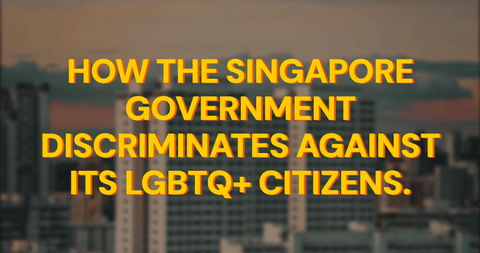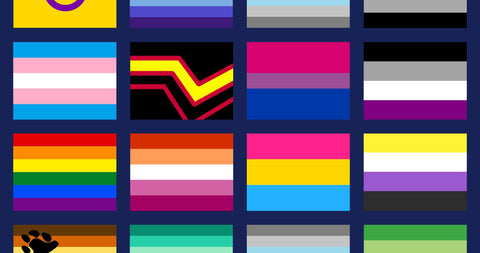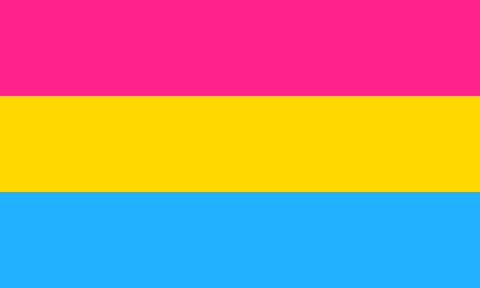“Being gay is the biggest sin” — Iani’s story of “conversion therapy” in Singapore
Ustazs convinced Iani’s parents that an evil spirit was causing their child to be lesbian. They engaged in “conversion therapy” practices until Iani collapsed from a mental breakdown.
| Updated on
Warning: This article describes psychological abuse, domestic abuse, and trauma. Help is available.
In recent months, the topic of “conversion therapy” piqued public interest. Heated arguments were made for and against “conversion therapy” programmes, but few featured the voices of abuse survivors. Over the past few weeks, we’ve spoken to many brave individuals who were willing to lend their experiences and voices to this public discourse.
Iani’s story is the second in our 4-part series that reveals the reality of “conversion therapy” in Singapore. Read the other stories here.
* * *
It had been two days since Hafiz last heard from Iani.
He knew that Iani’s parents had a history of abusing them [Note 1], and was worried for their safety. He’d tried everything — text messages, WhatsApp messages, voice calls — but received no response from Iani. It was as if they’d suddenly upped and left. Now his last resort was to make an unannounced visit to Iani’s house to make sure they’re safe.
Hafiz had a plan in mind. He would bring food to Iani’s house and pretend that they’d made dinner plans. It was something they did often, so he thought that that would make for a believable cover. At the back of his mind, however, Hafiz knew that this cover would be blown if something bad had really happened. Yet a half-baked plan was better than none at all.
Hafiz knocked on Iani’s house door and waited for someone to answer it. He heard some voices behind the door, but before he could make out what they were saying, the door cracked open. Iani’s mother greeted him with a strained smile, and Hafiz could see Iani’s father peering at him behind her. Hafiz knew that something’s not right.
“Hello aunty, uncle! I bought dinner for Iani, are they at home?” Hafiz said.
“No, but come in first,” Iani’s mother said, and ushered him into the living room. Iani’s father opened a Qur’an and started reciting a few lines of scripture to Hafiz. Once he was done, he passed the Qur’an to Hafiz and asked him to recite the same verses. It was an odd request, but Hafiz obliged; he knew why they were making him do that. After the ritual was completed, Iani’s parents told Hafiz that Iani had been admitted to the Institute of Mental Health (IMH) for emergency treatment of a psychotic breakdown. What they left out was that Iani’s breakdown was caused by “conversion therapy” sessions they forced upon Iani.
Hafiz rushed down to the hospital immediately. After two days of radio silence, he finally saw Iani again. But his feeling of relief was soon washed over by a commotion that erupted from Iani’s family members — they weren’t expecting any visitors. Iani winced at the noise and pulled Hafiz aside.
“Help me,” they whispered to him. “Break me out of here.”
“Many therapists that I’ve met in the past would ask if I tried hard enough to change my sexuality. Nobody found fault in my parent’s abusive behaviours.”
Iani had been close with their parents since they were young. But things turned quickly and unexpectedly when Iani was 16. They were accidentally outed as lesbian [Note 2] to their parents, and before they knew it, the elders in Iani’s extended family started getting involved in organising “conversion therapy” sessions.
Iani’s grandmother and uncle came over to their house one day. It was clear right away that this wasn’t just a normal social visit; Iani only saw their uncle at larger family gatherings and celebrations. Their uncle is an Ustaz — a male Islamic religious teacher — and he made Iani sit in the corner of the living room. He then began calling out to an “evil spirit” in the room, and asked it to speak with the group.
It was a confusing experience for Iani, because while he made it look as if he were speaking with an “evil spirit”, it soon became clear that he was speaking directly to Iani. He asked a range of questions, and most of them were phrased to get the answers that he wanted to hear.
“Are you sad often?” he asked.
“Yes,” Iani, who had a medical history of anxiety and depression, answered.
“Do you feel like your parents don’t understand you?” he followed up.
“Yes,” Iani, whose parents wanted to put them through “conversion therapy”, replied.
The questioning went on for a while, but he never asked Iani (or the “evil spirit”, for that matter) anything about being lesbian. Instead, the questions were generic enough — as if by intention — that most teenagers at Iani’s age would answer the exact same way.
At the end of the session, he declared that Iani was possessed by a jinn — an evil spirit in Islamic mythology. The jinn, he explained to Iani’s parents, was responsible for influencing Iani’s sexuality and needed to be expelled from their body for them to become “normal”.
The session was mentally exhausting for Iani, because they had to suppress a multitude of emotions. First was anger: they felt that their uncle’s mixing of his superstitious beliefs with Islam was insulting to the religion. Then disbelief: Iani didn’t expect their father, who was well-educated, to be so easily swayed by his claims. Finally, betrayal: Iani had just witnessed first-hand how quickly their entire family turned on them.
But the benignity of the first session made Iani let their guard down. In a way, nothing could have prepared them for what’s about to come.
Around a week later, Iani’s uncle returned to perform ruqyah (an exorcism) on Iani. He made Iani memorise and recite verses from the Qur’an, and whenever the recital wasn’t to his liking — whether it’s done too loudly, too softly, or “not smoothly enough” — he would whip Iani with a rattan cane. Iani’s parents draped a heavy blanket over Iani’s body before letting their uncle beat them; they were careful to ensure that he wouldn’t leave visible bruises.
Iani’s uncle also made them perform sujud — a low bow, where one gets on their knees and has their head touch the ground. He then held a lighter to each of Iani’s feet as he recited Qur’anic verses to “cast the jinn away”. Iani screamed in pain from the searing heat of the fire, but their parents only saw that as a sign that the exorcism was working. At the end of the ruqyah, Iani’s sexuality remained unchanged, but their trust in their family shattered completely.

“I still see my uncle at family events. Praying became difficult for me, because whenever I say ‘Allahu Akbar’, I would remember my uncle beating me up. And whenever I perform sujud, my feet would still tingle.”
It soon became clear to Iani that the ruqyahs that their parents arranged were meticulously planned to ensure that the perpetrators could get away without consequences. When Iani suffered from a mental breakdown, their parents decided to call in an Ustaz for a ruqyah instead of seeking medical help. The Ustaz came over and restrained Iani while he performed his ritual. But when Iani’s father saw the bruises on Iani’s wrists, he immediately scolded the Ustaz.
“Jangan eh! Nanti orang report police! (Don’t do that, what if they report this to the police!)” Iani’s father shouted.
At the end of the session, the Ustaz told Iani’s parents that the jinn possessing Iani was there to destroy their family. This was a test of the strength of their family’s Islamic faith, the Ustaz said. He added that Iani really wasn’t lesbian, but only became so because of the evil influence of the jinn. This line of reasoning — a repetition of what Iani’s uncle previously mentioned — reinforced the idea that LGBTQ+ identities are inherently “unnatural” and can be changed. The Ustaz went on to instruct Iani’s parents to read the Qur’an together every night, and pray together as a family at least once a day in order to drive the jinn away.
Iani’s parents took his advice to heart and began intensifying their “conversion therapy” practices. Every day, Iani’s mother would force them to listen to syarahan (religious sermons) that focused on the “right” ways women should act, and how they should go about finding “good” husbands. Every evening since the visit from the Ustaz, the azan (Islamic call to prayer) at home would blast louder than before.
Iani’s mother also started performing her own exorcisms on Iani: she would put a metal bowl over an open flame, and claim that doing so would hurt the jinn. The metal bowl in itself had no effect on Iani, but over time, it started triggering memories of previous ruqyahs, and would cause anxiety attacks to set in. It appears that Iani’s mother never realised that she was psychologically torturing her already mentally unwell child. Instead, she earnestly engaged in anxiety-triggering activities, thinking that her rituals were working, and that they were somehow helping her child “get better”.

“The Ustazs kept telling my parents that I really wasn’t gay, but was influenced by the jinn. They asked my parents to pray the gay away.”
Soon after, Iani’s father made them watch a documentary about the story of Lut [Note 3]. The story of Lut is often quoted by Muslims to demonstrate God’s disapproval of homosexuality. At the end of the documentary, Iani’s father told them that being gay is wrong. This was the first time he made his stance so explicit. Iani was enraged, and argued that Allah also warned against rape in the story of Lut.
“Rape is everywhere, but being gay isn’t,” Iani’s father responded. “That’s why being gay will always be the biggest sin.”
As a survivor of childhood sexual assault, Iani felt like a knife was plunged into their chest. Iani’s father knew about their childhood trauma and how much it affected their mental health. Yet it seemed like he still believed that sexually violating someone else was more acceptable than being gay.
Iani’s existing mental issues, coupled with their parents’ relentless “conversion therapy” practices, meant that they spent considerable time with therapists at IMH. And even though Iani had been vocal about their parents’ abusive behaviours — even telling their therapists that their parents should be the ones receiving treatment — no serious action was taken against their parents. The responses Iani heard back were often along the lines of: “They only act like that because they’re muslims”; “They’re doing this for your own good”; “Some parents are like that”.
Even when a therapist was willing to talk to Iani’s parents about their “conversion therapy” practices, they would find themselves powerless in countering their beliefs.
“I’ve told your parents about sexuality and how it can’t be changed,” the therapist told Iani. “They know that what they’re doing is wrong.”
“So why won’t they stop?” Iani asked. “Why do they keep doing it?”
“They told me that they’re not stopping because they want to be better muslims.”
“There were times when I just sat down and prayed. I thought to Allah: if you’re really here, give me a sign that I should stop being gay. I never got any response.”
Iani is much older now, and no longer lives with their parents. They never reconciled with each other, and their relationship remains strained. Though it’s been many years since their last “conversion therapy” encounter, Iani hasn’t fully recovered from the trauma. Listening to azans could trigger anxiety attacks. Hearing someone say “Allah” would bring back memories of being beaten up by their uncle.
The concept of a jinn causing homosexuality might sound unique to Islam, but its main tenets are very similar to other “conversion therapy” beliefs. For one, a core idea behind the jinn’s possession is that people aren’t naturally LGBTQ+, but are influenced by external forces to be so. On top of that, the exorcism of the jinn is just another way of asserting that people’s sexualities can be changed. In those regards, “conversion therapy” practices across religions [Note 4] are more similar than they are different.
It’s important for us to understand that there is medical consensus that “conversion therapy” practices don’t work, and can cause long-term harm on participants (page 115). As we can see from Iani’s story, “conversion therapy” can lead to trauma that deeply affects the mental health of participants.
Many countries have taken action to protect people from the harms of “conversion therapy”. Taiwan has fully banned “conversion therapy” practices, while Germany has done so for minors. Other countries such as Canada, Israel, New Zealand, and the UK are considering legislation that would make them illegal.
In June 2021, the Singapore Psychological Society — for the first time since its inception in 1979 — officially discouraged the use of “conversion therapy” on LGBTQ+ individuals. It acknowledged the harmful effects of such practices, and recommend medical professionals to use therapy that affirms the individual’s orientation or identity.
Yet “conversion therapy” remains legal in Singapore. Many other teenagers like Iani may continue to be subjected to abusive ruqyahs and face long-term psychological damage. On top of that, Singapore’s domestic abuse laws allow parents to punish their child, so long as it’s done to “correct” the child’s behaviour (s64). This legal loophole means that many parents may be able to continue enlisting the help of Ustazs for “conversion therapy” with no consequence.
Take action against “conversion therapy” today
“Conversion therapy” is a public health issue. We should continue to defend the right of people to practice their religion and beliefs, yet strike a balance to ensure that the health and safety of individuals aren’t disproportionately affected by any practice, especially those that are known to cause deep harm.
We’ve prepared an email template that you can send to relevant ministries (Health, Law, Home Affairs), as well as members of the opposition party, asking them to protect teenagers from the harms of “conversion therapy”.
If the button doesn’t work for you, use this document instead.
We propose the following regulatory changes to help safeguard minors from the harm of “conversion therapy” in Singapore:
- Require any person who practices “conversion therapy” to give participants a warning message that “conversion therapy” has no scientific basis and may not work. This would be similar to how tobacco products are mandated to contain health warning labels.
- Prohibit advertisements of “conversion therapy” practices in Singapore. This would be similar to how tobacco products are barred from all forms of advertising in the country.
- Prohibit medical professionals from suggesting, endorsing, or prescribing “conversion therapy” practices. Although the Health Minister has said that medical professionals are expected to practice according to “evidence-based best practice and clinical ethics”, this stance isn’t a prohibition of the harmful practices of “conversion therapy”.
- Amend regulations to close the loophole on domestic abuse laws, by explicitly categorising “conversion therapy” as a form of domestic abuse.
- Amend regulations to explicitly include “conversion therapy” as a form of ill-treatment under our child abuse laws.
- Outlaw “conversion therapy” practices.
If the button doesn’t work for you, use this document instead.
[Note 1]
Iani uses the gender-neutral “they / them” pronouns. For example, instead of saying “She felt betrayed”, we should say “They felt betrayed”.
[Note 2]
Iani is actually pansexual, but their family thought that they were lesbian.
[Note 3]
Briefly, Lut was sent as a prophet to Sodom and Gomorrah, and tried to dissuade the citizens there from continuing their sins, which included rape and sex between men (amongst other things). Ultimately, the citizens ignored Lut’s warnings, and their cities were destroyed by God.
Some theological scholars dispute that the story of Lut focused only on rejecting homosexuality, and instead argue that it renounces sexual assault.
[Note 4]
To be specific, we’re referring to Abrahamic monotheistic (meaning having one God) religions (such as Islam and Christianity), which tend to hold similar views on homosexuality. Polytheistic (meaning having more than one God) religions (such as Hinduism and Buddhism) tend not to hold strong views on homosexuality.

Help is available
If you’re currently struggling with your sexuality or gender identity, help is available.
A social service helpline that supports LBTQ+ women in Singapore.
- WhatsApp: +65 8788 8817 (check operating hours here).
An LGBTQ+ support organisation that provides affirming counselling services.
- WhatsApp counselling: +65 8592 0609 (check operating hours here)
- Email counselling: CARE@oogachaga.com (typically responds within 72 hours)
A local trans shelter that runs trans-focused services.
- Temporary stay shelter: Find more details on their website
- Professional counselling: Find more details on their website
An emergency helpline that provides confidential emotional support to individuals facing crises.
- 24-hour hotline: 1800 221 4444
- Email counselling: pat@sos.org.sg
* * *
This personal story was contributed by Iani, who was put through numerous ruqyahs by their parents. We withheld the real names of people and organisations in the story to protect Iani’s identity and safety. The illustrations in this article do not represent how Iani looks in real life.




